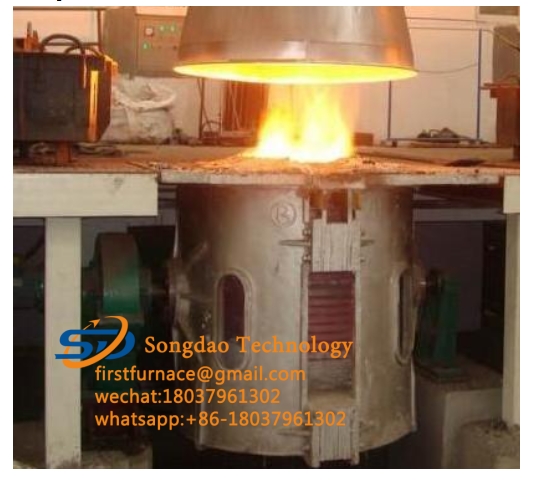- 13
- May
The basic characteristics of induction melting furnace smelting
The basic characteristics of induction melting furnace smelting
Induction melting furnace and electric arc furnace smelting methods have their own different characteristics, so it is difficult to replace each other, but to give full play to their respective advantages, adopt or cooperate with local conditions to achieve good results.
Table 4-1 Basic characteristics of induction melting furnace melting (compared with ordinary electric arc furnace)
| شماره سریال | Compare content | کوره قوس الکتریکی | کوره ذوب القایی |
| 1 | روش گرم کردن | The metal charge is heated, melted, and refined under the direct action of the graphite electrode high temperature arc, and the elements have volatilization, oxidation loss and carbon increase | Under the action of the induction magnetic field, the metal charge generates eddy current, which is heated, melted and refined (non-contact heating) by resistance heat, and the temperature is easy to control. Element volatilization and oxidation loss are small, and alloy recovery rate is high |
| 2 | Slagging conditions | The molten steel heat source of the high-temperature arc is directly in contact with the slag, and the temperature of the molten slag is almost the same as that of the molten steel. | The slag is melted by the heat of the molten metal, so the slag temperature is lower than that of the molten steel. It belongs to “cold slag” (relatively speaking), and its fluidity and reaction ability are worse than electric arc furnace slag |
| 3 | Stirring conditions of molten metal | Relying on the agitation of the molten pool formed by the decarburization reaction to produce co , the denitrification capacity is worse than that of the induction melting furnace | Relying on electromagnetic stirring to make the temperature and composition of the molten steel uniform, with good degassing (N2 ) ability due to good stirring |
| 4 | Metallurgical function | Removal of oxidation of C , de P, with the reducing off of reduced slag S, a raw material can be relaxed condition | Does not have the function of removing C and removing P and S (without special measures), and the raw material conditions are harsh |

